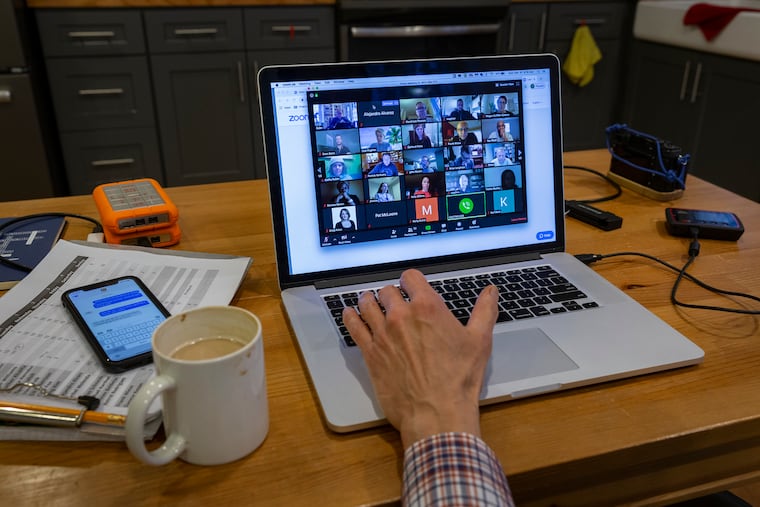Zoom bombing: What it is, and how to stop it from ruining your coronavirus events
Zoom, a platform originally designed for business use, has been pressed into service as a social media platform. And the online abuse has already begun.

Ruha Benjamin was nearing the climactic final pages of “Walter the Farting Dog.”
Benjamin, a professor of African American Studies at Princeton University, hosted a video with her husband where they read kids books by video to give parents some much-needed relief. Forty-two families had signed up for the event through a publicly disseminated video link.
It was then, Benjamin said, that she experienced a “Zoom bombing.”
Midway through a sentence, someone was able to take over the screen that was being broadcasted to children and their parents. The person posted a vulgar image and proceeded to use racial epithets, until Benjamin, scrambling, was able to shut down the call.
“We kind of froze for a couple seconds, because we didn’t know what was happening,” Benjamin said.
Benjamin was able to restart the call with stricter moderation controls, and in the end, 13 of the 42 families were able to hear the end of “Walter the Farting Dog” without interruption. Benjamin’s experience has become increasingly common over the last few weeks.
Zoom, a platform designed for business use, has been pressed into service as a social media platform, as millions of people isolating at home have sought new forms of face-to-face communication. And we’re hungry for that right now. According to a study by App Annie, during the week of March 14-21, Zoom and other business conferencing apps were downloaded 62 million times, a 90% increase over the same period last year.
The online abuse has already begun.
What is happening? And why?
Zoom bombing — just like any other practice of interrupting a public event to annoy or harass those in attendance — is a sort of digital streaking, an attention-grabbing stunt without much purpose besides its own existence, says Jessa Lingel, an assistant professor at the University of Pennsylvania, who studies digital culture.
It’s a variation on a familiar online theme: bad actors eager to exploit holes in the security of yet another social media platform. And with a deluge of users who may be unsure of how to take the proper safety measures, it’s an easy target for those who wish to disrupt meetings.
Lingel says women and people of color are especially vulnerable to such attacks.
Ceri Weber, a recent Ph.D. from Duke University studying cell biology, had never experienced Zoom bombing before her recent dissertation defense, which she gave to about 100 viewers. So it came as a surprise as a disembodied voice started interrupting her presentation, quietly at first, but then with greater volume, followed by threats.
She was eventually able to finish her presentation in peace, but it was disturbing nonetheless, not just for her, but for her peers, colleagues, friends, and family who showed up. “I am sorry that they had to experience it, too.”
It was only after that she became aware of online resources that teach new Zoom users about proper security measures.
How to make sure it doesn’t happen to you
Here are a few key steps you can take next time you’re hosting a Zoom meeting:
Before the meeting, turn off the following settings: autosaving chats, file transfer, screen sharing, and remote control.
Enable the Waiting Room for your meeting. This is a sort of digital lobby that allows you, the host, to play a more active role in selecting who can enter the meeting.
If someone is actively disrupting your meeting, click Mute All, on the participants list.
Lingel believes that Zoom bombing can be a learning experience. Now that we’re all using Zoom as a social media platform, we should be treating it as such, and thinking hard about how to protect ourselves online.
“Just like people should be updating their Facebook settings, just like people should be thinking about location data that they put on Twitter or Instagram, we should also be thinking about the settings of a platform like Zoom,” she said.